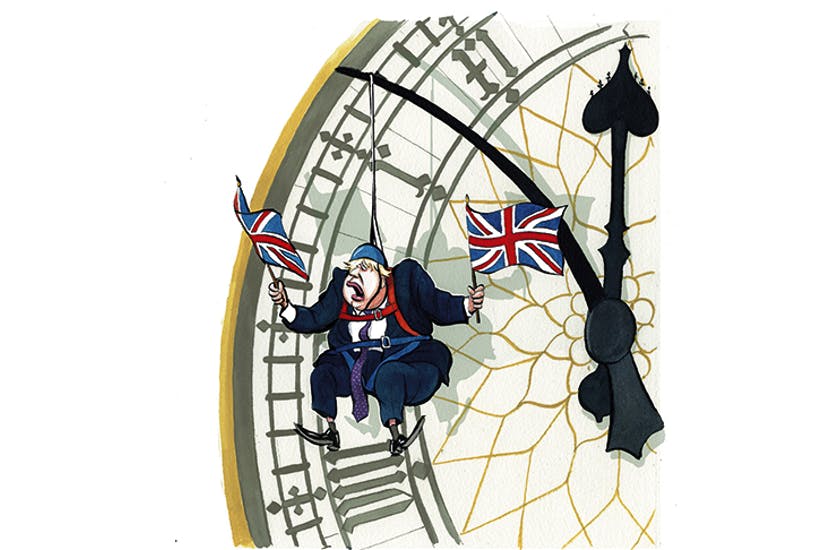Lots and lots of optimism. Some can-do spirit. A dash of hope, a sprinkle of belief, some added willpower and a pinch of positive thinking. Oh, and in case you forgot, some more optimism (and a few rays of sunshine as well). A whole week into his premiership, which is longer than some of the sceptics gave it, and one thing is clear about Boris Johnson. He is planning to ride through our departure from the European Union, and any damage to output and jobs it may create, simply by making everyone feel better about it.
Indeed, ‘boosterism’ as it now appears to be known inside Number 10, has turned into a major plank of the government’s economic strategy. A constant stream of new spending initiatives, infrastructure plans, tax cuts and strategic re-launches are going to be unleashed on the country. To a lot of his critics, of course, that is complete nonsense. Even worse it will re-enforce the impression of Johnson as a flimsy showman, addicted to attention and with as much substance as the finalists of Love Island. And yet, in truth, that is unfair. Raising confidence can help the economy – it is just that you need to spend some money as well.
In his first week alone, Johnson has announced plans for a new rail link from Manchester to Leeds, announced the recruitment of thousands more police officers, and is now planning lots more money for social care as well. We can expect a lot more initiatives in the next couple of months. Indeed, if you have a plan for a hyper-space travel link from Cardiff to Newcastle, or a satellite to bring high-speed broadband to Bodmin Moor, now is the time to whack it in. No. 10 will probably have signed off on it before breakfast.
That is not a completely ridiculous strategy. Confidence plays such a big role in economic performance that it gets a whole chapter to itself in the standard textbooks. When businesses and consumers feel better about the prospects for the economy, they invest and spend more, and that generates a cycle of self-sustaining growth. Indeed, it is remarkable how well the British economy has done in the last three years (we have record levels of employment, the fastest wage growth of any major European economy, and still attract the most foreign investment) given how terrible we have been feeling about ourselves. With some positivity, we would have done even better.
Nor is it crazy to think you can simply talk a country up. Indeed, central bankers have long had a strategy called ‘jawboning’ in which they try to talk a currency up or down with a string of statements calculated to nudge the market in the way you want it to go. Governments can certainly influence the way the economy performs with words as well as actions. If businesses start to feel better about Brexit, they will invest more, and if consumers feel more relaxed about keeping their jobs they will spend more, and that will help lift demand. It is certainly better than keeping Project Fear on an endless loop: telling people the economy is about to be wiped out could easily create a recession all by itself.
The trouble is, ultimately it will need some substance as well. A round of infrastructure projects are great but at some point the diggers and cement mixers will have to come out. Spending promises are a start, but sooner or later they will have to be delivered. And speeches about tax cuts are fine, but eventually people want to see them on their pay packet. Boris’s boosterism may well help the economy ride through a turbulent departure from the EU in October. It will certainly be better than the miserabilism of Theresa May and Philip Hammond. But, at the risk of sounding unacceptably negative, it won’t be quite enough by itself – and eventually the new government will have to deliver.






Comments